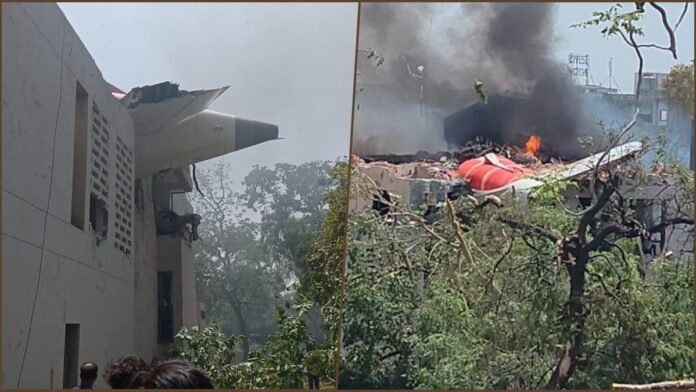
Key Points
- The Air India Boeing 787 Dreamliner crash in Ahmedabad is set to trigger India’s largest-ever aviation insurance claim, with liabilities expected to exceed ₹1,000 crore and possibly reach ₹2,400 crore.
- The Tata Group, owner of Air India, has announced ₹1 crore compensation for each victim’s family and pledged to cover medical expenses for the injured.
- The Montreal Convention mandates compensation of up to 1,28,821 Special Drawing Rights (SDRs) per deceased passenger, translating to about ₹1.47–1.8 crore per person at current rates.
- The insurance payout will cover aircraft loss, passenger compensation, third-party property damage, and ground casualties, making it a record-breaking claim for Indian and global insurers.
- Air India’s insurance is backed by Tata AIG and a consortium of Indian and international reinsurers, with the financial impact expected to ripple through the global aviation insurance market.
New Delhi: The tragic crash of an Air India Boeing 787 Dreamliner in Ahmedabad has set off what is expected to be India’s largest aviation insurance claim, with total liabilities likely to surpass ₹1,000 crore and potentially reach as high as ₹2,400 crore. This unprecedented claim dwarfs the annual premium for the entire Indian aviation sector and is poised to have far-reaching consequences for both domestic and global insurance markets.
The Tragedy and Immediate Response
Flight AI-171, bound for London Gatwick, crashed just 33 seconds after takeoff from Sardar Vallabhbhai Patel International Airport, slamming into the hostel block of B.J. Medical College in the Meghaninagar neighborhood. The disaster claimed 241 lives including 230 passengers, 12 crew members, and at least 38 people on the ground leaving only one survivor.
In the wake of the tragedy, Tata Group, which owns Air India, swiftly announced a compensation package of ₹1 crore for the family of each deceased victim and committed to covering all medical expenses for the injured. The group also pledged support for rebuilding the hostel destroyed in the crash.
Insurance Breakdown: Hull, Liability, and Global Impact
The insurance claim is expected to be the most expensive in Indian aviation history. The hull loss the value of the destroyed aircraft is estimated at $80–$250 million, depending on the aircraft’s age and configuration. Passenger liability, mandated by international law, adds another $30–$100 million, with further costs for third-party property damage and ground casualties due to the aircraft crashing into a residential area.
Air India’s insurance is structured through Tata AIG as the lead insurer, with participation from New India Assurance, GIC Re, and a host of global reinsurers, primarily through the London market. The scale of the claim is expected to impact insurance premiums and risk assessments across the global aviation sector.
Compensation Under the Montreal Convention
Compensation for victims’ families is governed by the Montreal Convention, an international treaty ratified by India in 2009. The treaty sets strict liability for airlines, requiring payment of up to 1,28,821 Special Drawing Rights (SDRs) about ₹1.47–1.8 crore per deceased passenger, depending on exchange rates. This is significantly higher than the ₹1 crore announced by Tata Group and ensures a standardized, globally recognized compensation framework.
For the 241 victims, this translates to a minimum liability of ₹377–₹412 crore for passenger compensation alone, with the total claim rising further when including crew, ground victims, and property damage.
Industry and Market Impact
The magnitude of the insurance payout is expected to send shockwaves through India’s aviation insurance market and affect global reinsurers, many of whom share the risk through complex international arrangements. Shares of major insurers like New India Assurance and GIC Re dropped following the incident, reflecting the anticipated financial strain.
Tata Group’s Support Initiatives
Beyond compensation, Tata Group and Air India have mobilized over 100 caregivers and technical staff to Ahmedabad, set up assistance centers in multiple cities, and arranged special relief flights for victims’ families. The company has reiterated its commitment to supporting affected families and communities throughout the recovery process.

















































